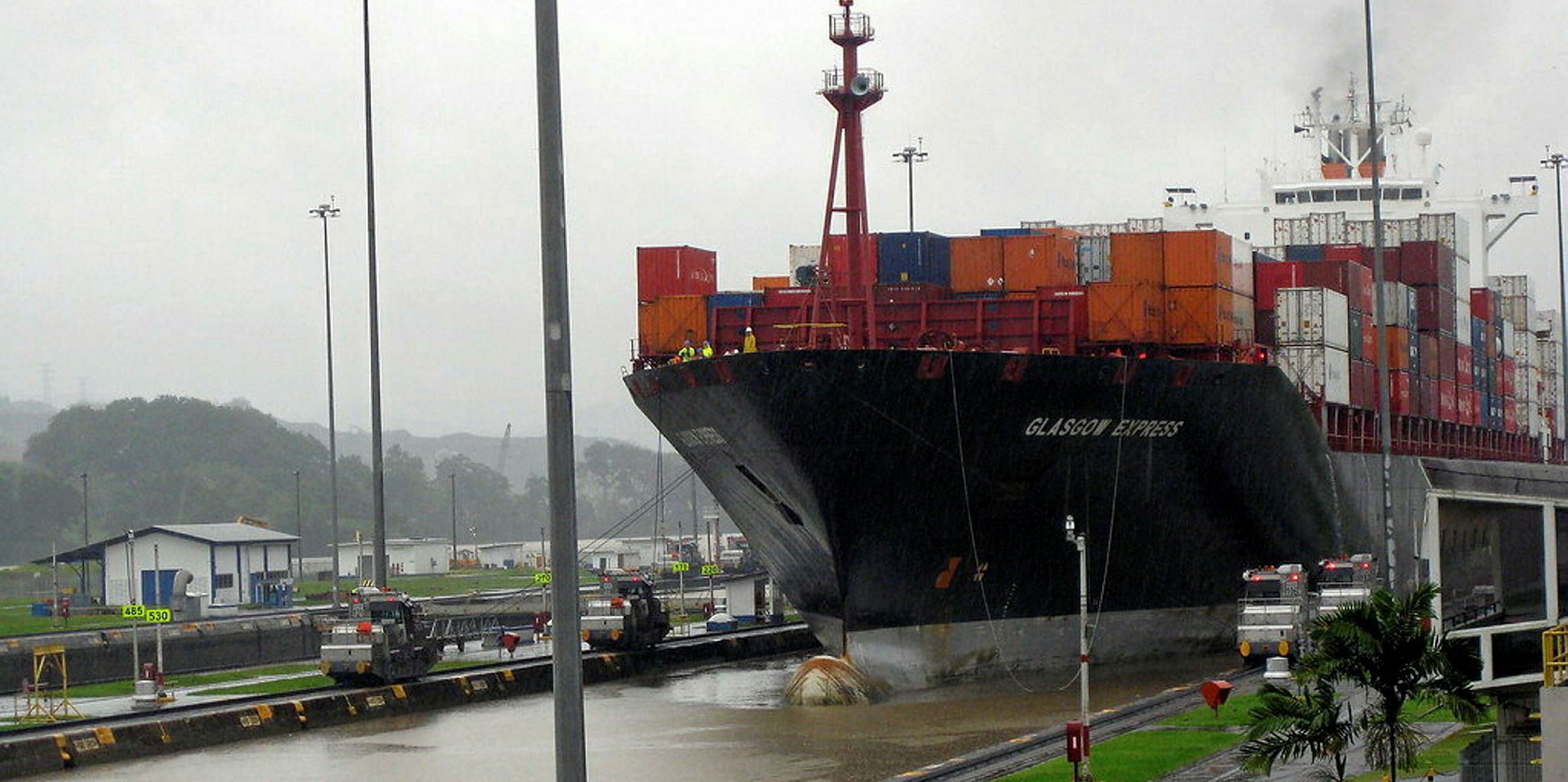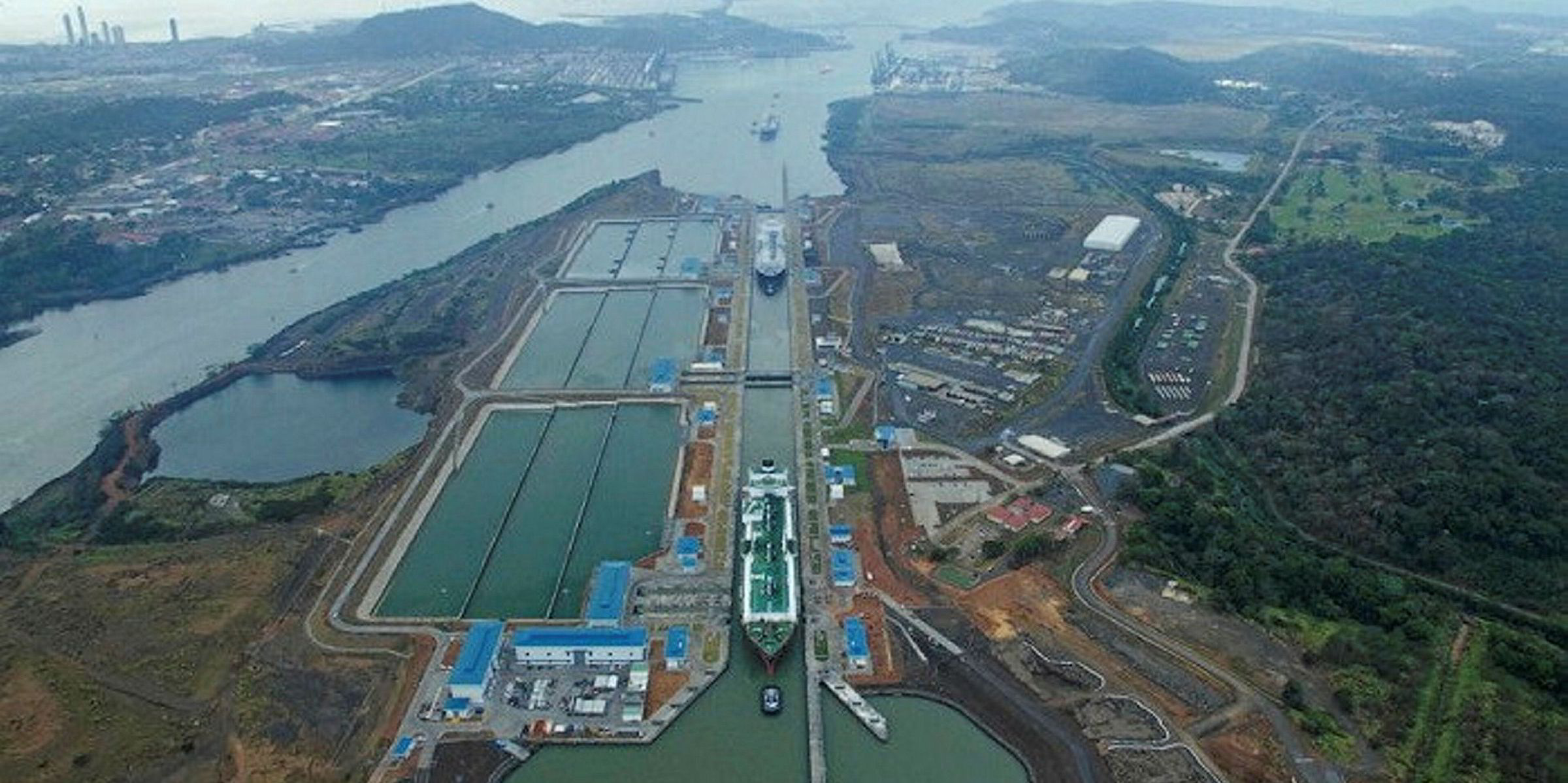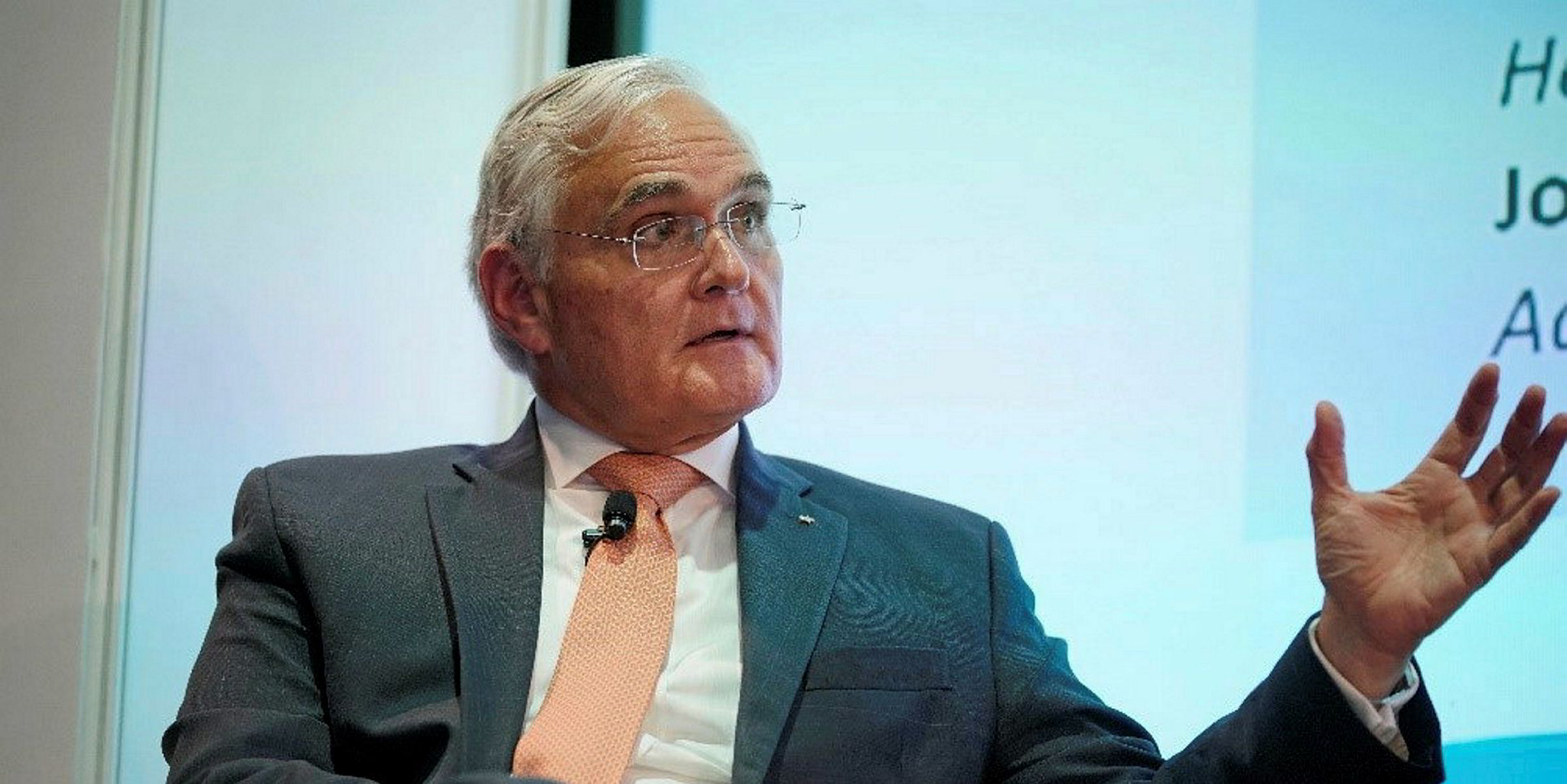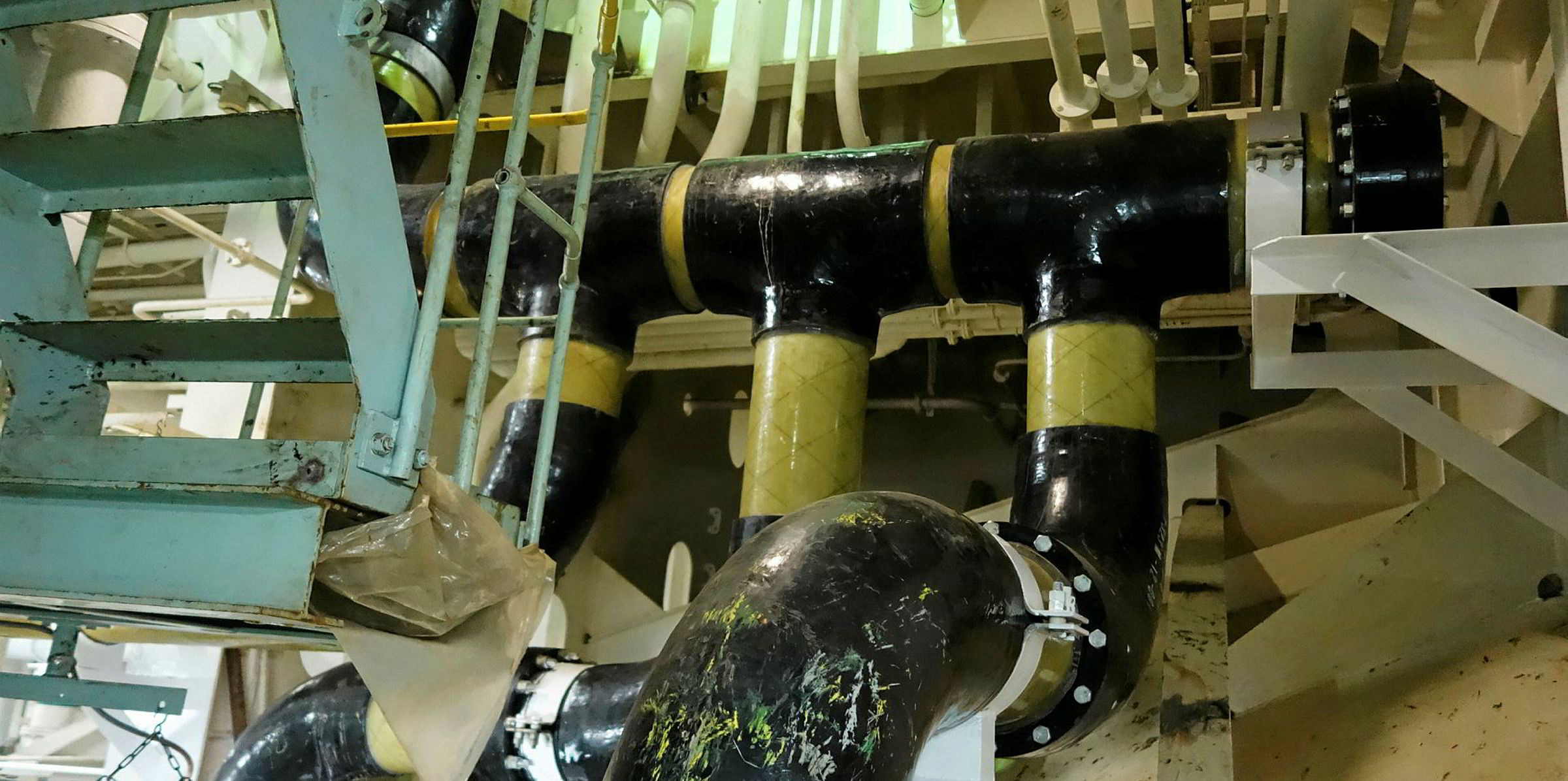Is the Panama Canal's ban on exhaust gas scrubber wastewater (EGCS) discharge from ships transiting the global chokepoint a good thing or a bad thing?
The answer to that question depends on whom you ask.
Backers of the IMO 2020 devices are not so happy about the Panama Canal Authority (ACP) decision, while environmentalists applaud it heartily.
"These flawed systems have proven unreliable in operation to deliver the air pollution control for which they are designed, and have repeatedly failed to meet water quality standards," Stand.earth senior shipping campaigner Kendra Ulrich told TradeWinds.
"Scrubber effluent poses a threat to marine ecosystems the world over, and as such, discharges should be banned globally."
ACP prohibited release of such effluent from ships nine months ago as an update to a longstanding prohibition against solid and liquid wastes.
"This action was necessary due to the advent of vessels that will be opting to use scrubbers to comply with IMO 2020 fuel regulations," the authority told TradeWinds.
"The intent is to not compromise the quality of these fresh water reservoirs by not allowing discharges that will result in the introduction of waterborne contaminants."
The US banned spillage of waste into the canal since acquiring it in 1904 until giving it to Panama in 2000. Panama maintained the ban before prohibiting scrubber effluent this year.
Three sentences make all the difference
ACP has enacted the scrubber wastewater ban through a small, inconspicuous passage buried in a 134-page legal document published at the beginning of this year.
"Residues from the Exhaust Gas Cleaning System (ECGS) washwater are to be collected on board," it says under a section on discharge of ship wastes, oily bilge and ballast waters.
The sweeping ban is summed up in two more sentences, thus disallowing ships from dispensing scrubber effluent into one of the world's most important waterway since 1 January.
"Discharging these residues into the water bodies under the responsibility of the Panama Canal or incinerating them on board is not permitted," the small paragraph reads.
"If a closed-loop scrubber system is operated during canal transit, the cleaned bleed-off water is to be retained in a holding tank on board."
ACP officials enforce the ban by inspecting ships' scrubbers and recording scrubber type, holding tank capacities, International Air Pollution Prevention papers and log books.
"Needless to say, not complying with ACP’s requirements may result in delays or sanctions," ACP said.
Camps still divided
Not surprisingly, these opposing stances echo the well-established chasm of opinion between environmentalists and scrubber proponents such as Clean Shipping Alliance (CSA) 2020 over the use of open-loop scrubbers.
CSA 2020 spokesman Patrik Wheater points out that ACP is only banning scrubber water discharge from the canal, not open-loop scrubbers.
"The likely reason for the restriction in the canal is because the Gatun Lake, a freshwater lake to the south of Colon, and which forms a major part of the canal, is a source for drinking water supply," he told TradeWinds.
"From a technical perspective, we also understand that the salinity and alkalinity levels of the Panama Canal can impact the operational efficiency of some open loop scrubbers."
The International Chamber of Shipping (ICS) also backs the kits, saying governments should wait until more research is done on scrubber effluent before banning its discharge.
"ICS finds the proliferation of unilateral prohibitions imposed on discharges from open loop scrubbers unfortunate," it told TradeWinds.
Fellow scrubber advocate Exhaust Gas Cleaning System Association did not immediately return emails seeking comment.
'Powerful message'
The Panama Canal, which serves 14,000 ships on 150 trade routes, joins China, Singapore, Port of Fujairah and other countries and ports in banning such pollution, Ulrich said.
"This sends a powerful message to those ship operators hoping to skate around stricter air pollution control measures by installing 'emissions cheat' scrubber systems — turning air pollution into water pollution is not an acceptable solution for the environmental and human health harm caused by the use of ultra-dirty heavy fuel oil," she said.
"It is past time for the UN International Maritime Organization to put the protection of the marine environment first by closing the scrubber loophole."
The Environmental Protection Alliance is also happy with ACP's decision but considers it only "a first step" in limiting coastal damage caused by scrubbers.
"However, limiting pollution in the Panama Canal and allowing that same toxic water to be dumped into the surrounding oceans is not neighbourly toward surrounding countries and does not go far enough," the organisation said in a statement.
"The Panama Canal must do the only sensible thing necessary to protect its waters and ban ships from using the Panama Canal altogether."







